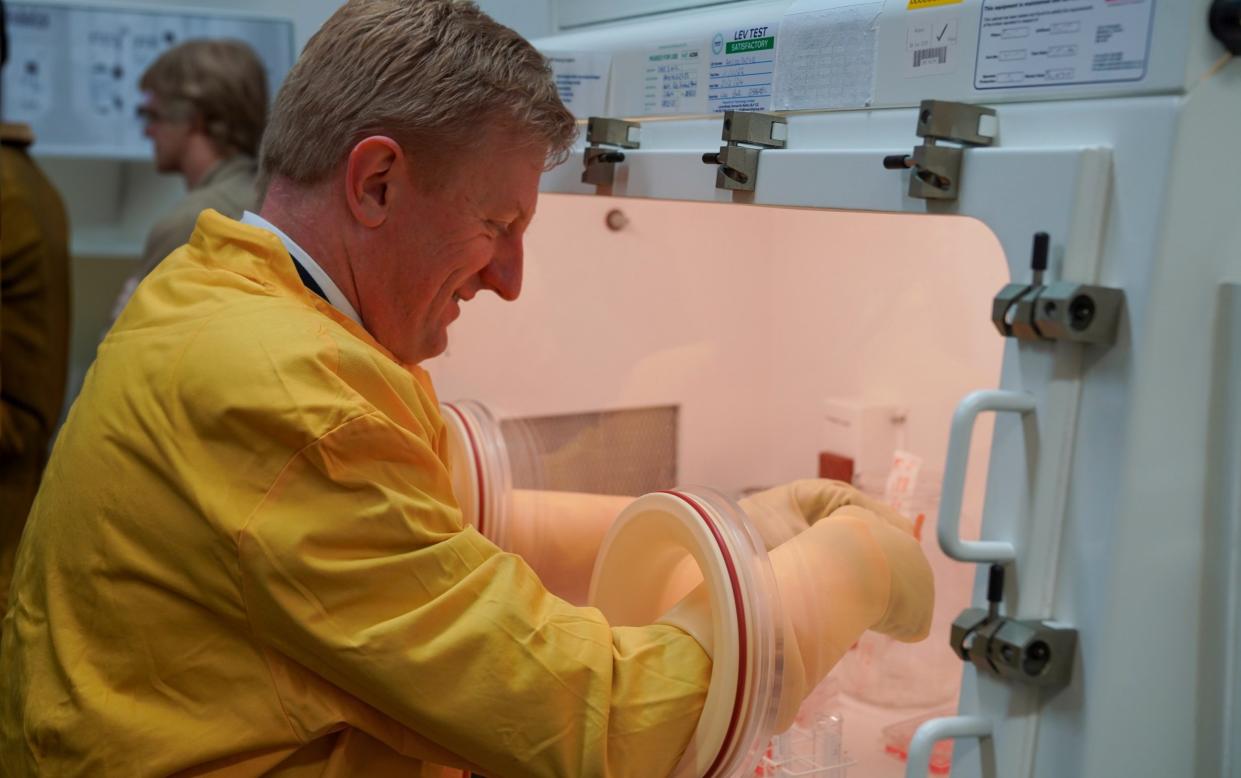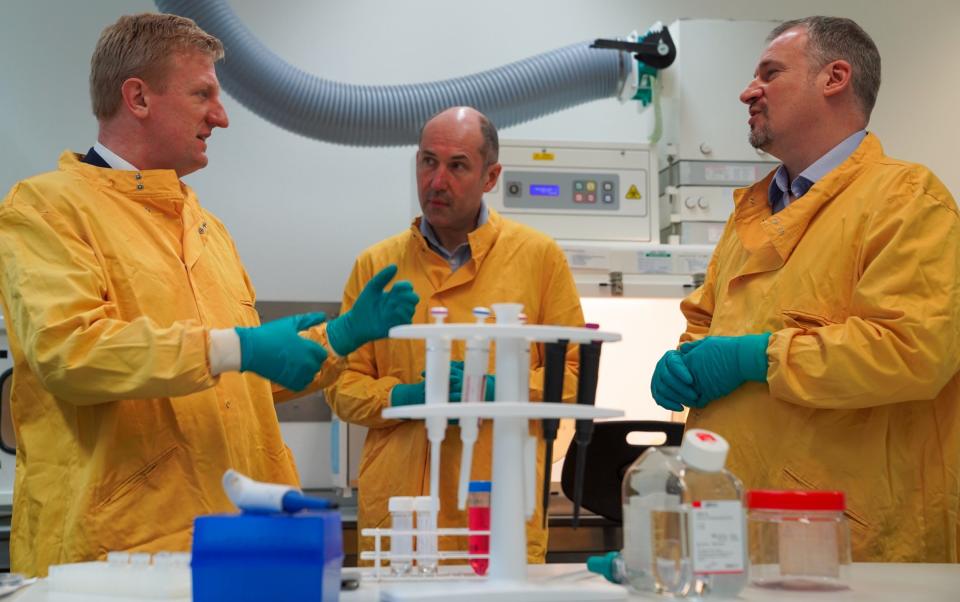Cyber attack will leave you needing these ‘analogue’ items, says Oliver Dowden

- Oops!Something went wrong.Please try again later.
People should keep a battery-powered radio, a torch and candles to hand in the event of a cyber attack, the Deputy Prime Minister has suggested.
Oliver Dowden said householders needed to be ready for the potential collapse of digital devices in the event of a cyber attack sparking a power outage that could thrust Britons back to an “analogue” age.
Speaking during a visit to Porton Down, the top secret defence establishment in Wiltshire, he said it was the Government’s duty to review individuals’ resilience in the event of a catastrophic disaster that could knock out conventional communications and other systems.
He announced that the Government would launch a “resilience website” next year that will explain to Britain’s 28 million households what they might need to do to cope with a catastrophe and what they could do to help others who may be more vulnerable.

Mr Dowden, the minister responsible for ensuring the UK is prepared for a disaster, said this meant being resilient not only in a digital era but also in an “analogue age”.
“What we’re looking at is making sure that people are resilient if, for some reason, you have loss of power,” he said.
“Do people still have in a cupboard under the stairs a torch or candles or whatever else. Individual resilience is something that I’m revisiting again. What should we be saying to people to make sure that they’re just just prepared and personally resilient?
“Another example is radios. It always used to be the case that everyone would have access to a battery-operated FM radio. How many people actually have that kind of communication device that isn’t reliant on digital and electric?
“If it was a public health emergency, the relevant officials would be on [the radio] and we’d need to be able to communicate with people. We need to think about whether we have those resilient communications capabilities.
“So we shouldn’t assume that the kind of resilience that we had as individuals when we were growing up is the same now because society has so massively digitised.”

During his visit, Mr Dowden was shown the laboratories at Porton Down, where scientists from the Ministry of Defence and NHS work on investigating and preparing contingencies for the biggest biological, chemical and physical threats to Britain.
His visit came ahead of his presentation to Parliament on Monday of the first annual statement on the risks for Britain and its resilience in face of a natural or man-made disaster.
“It could be tomorrow that one of these things hits,” said Mr Dowden, adding this was why the Government was looking to set up a resilience website.
“It’s no good for me as a minister once the crisis hits suddenly thinking: ‘What about the resilience of the individual?’ That’s not to take away from government responsibility, but part of my job is to try and co-ordinate that whole of society approach.”
Volunteering hub on new website
The website will include a volunteering hub that will aim to harness people’s willingness to help vulnerable people in the aftermath of a disaster in the same way that during Covid volunteers worked at vaccination centres directing traffic or people, or transported food to others who had to self-isolate.
Britons will be invited to sign up to the volunteering hub and detail their expertise such as first aid, medical or practical skills and experience working with children, the vulnerable or sick. It will be coordinated with volunteer organisations such as St John Ambulance.
Mr Dowden also warned that Artificial Intelligence (AI) could turbocharge threats to the UK. “The proverbial teenage kid in their bedroom with the application of AI is going to be a much better hacker than they were previously,” he said.
“The ability of lone, malign individuals to be able to have greater capabilities to understand how to develop biological threats increases with AI. Likewise with chemical risks. AI should help us with our defences – but it certainly enhances the risk landscape.”
